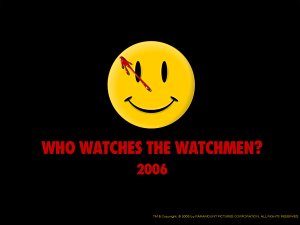
On Tuesday, Attorney General Alberto Gonzalez testified in front of the Senate Judiciary Committee in regard to an investigation by the Department of Justice’s (DOJ) Office of Professional Responsibility (OPR) into President Bush’s warrantless surveillance program conducted by the National Security Agency (NSA). The investigation, initiated at the request of several House Democrats, was halted when the attorneys tasked with the investigation were denied security clearance to examine documents related to the program. Despite the fact that a host of other lawyers at the DOJ had such clearance, it was only the OPR attorneys who were denied access.
While there is no debate that the president has the legal authority to grant or deny clearance, the decision by President Bush in this instance is without precedent. Murray Waas at the National Journal has been following this and other stories centering on abuse of Constitutional power, and his article of July 18th contains this alarming passage:
H. Marshall Jarrett, OPR's lead counsel, wrote Deputy Attorney General Paul McNulty, on April 21, 2006, to point out that while OPR was denied security clearances to conduct its inquiry, requests from prosecutors and FBI agents tasked with investigating who first leaked details of the NSA surveillance program to the New York Times were "promptly granted."
"We note...," Jarrett wrote, "that the Criminal Division's request for the same security clearances from a large team of attorneys and FBI agents were promptly granted, and that their investigation of certain news leaks about the NSA program is moving forward."
Jarrett also noted that while he and his attorneys were denied the clearances, five "private individuals" who serve on the president's "Privacy and Civil Liberties Oversight Board have been briefed on the NSA program and have been granted authorization to receive the clearances in question." Private citizens -- especially those who serve only part-time on governmental panels -- have traditionally been considered higher security risks than full-time government employees, who can lose their jobs or even be prosecuted for leaking to the press.
In sharp contrast, Jarrett noted, OPR's "repeated requests for access to classified information about the NSA have not been granted. As a result, this Office, which is charged with monitoring the integrity of the Department's attorneys and with ensuring that the highest standards of professional ethics are maintained, has been precluded from performing its duties."To summarize:
- Private individuals serving in a part time capacity on a presidential board had access to the information sought by the OPR investigating attorneys
- Attorneys from the Criminal Division of the Department of Justice also had clearance
- President Bush personally made the decision to deny access to the lawyers from the Office of Professional Responsibility
A senior Justice official said that the refusal to grant the clearances was "unprecedented" and questioned whether the clearances were denied because investigators might find "misconduct by those who were attempting to defeat" the probe from being conducted. The official made the comments without knowing that Bush had made the decision to refuse the clearances.
This is no longer one president asserting his vision of executive power.
This is a direct assault on the Fourth Amendment by the chief executive with the complicity of the legislature.
If Congress abandons its duties of oversight, who watches the watchmen?
No comments:
Post a Comment